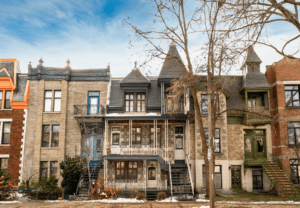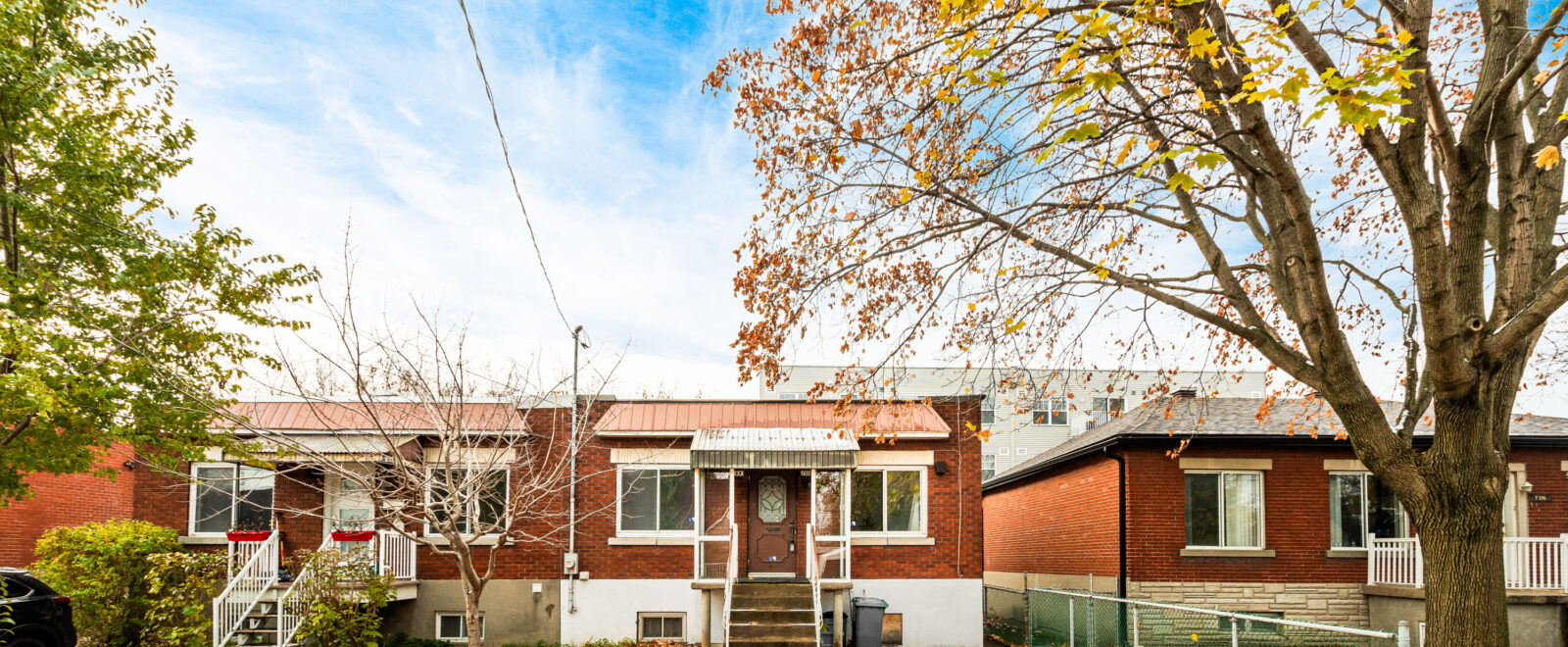Everything you need to know about estate sales - Key Information
You have recently inherited a property and are considering selling it, but you’re wondering what steps to take? In Quebec, the sale of an estate refers to the transfer of real or personal property of a deceased person as part of the settlement of their estate. We have collaborated with Jean-Vincent Boggia, a real estate broker at YE/SARRAZIN, to address all your questions on the subject.
What is an estate sale?
An estate, in the legal domain, represents all the property, rights, and obligations of a deceased person. When a person dies, the management and distribution of their property fall to an entity designated according to legal or testamentary provisions in force. This entity, often called the “liquidator” or “executor,” is responsible for handling the financial and legal affairs related to the estate.
In this context, heirs may consider selling a property they have inherited, whether it be a house, divided or undivided co-ownership, income property, cottage, etc.
What are the differences between intestate and testate succession?
Intestate succession occurs when the deceased has not drafted a will or if the will is invalid. The distribution of assets is governed by the intestacy laws in force in the country or state. Heirs are designated according to a priority order established by law, usually direct descendants (children, grandchildren), the surviving spouse, then other relatives based on their degree of kinship. The management of the estate is often entrusted to a liquidator designated by law or chosen by the family.
Testate succession occurs when the deceased has drafted a valid will before their death. The testator explicitly designates the beneficiaries of their assets as well as the liquidator or executor responsible for implementing the provisions of the will. The will may allow the deceased to deviate from the rules of intestate succession and distribute their assets according to their personal wishes, subject to compliance with applicable legal provisions.
How does an estate sale proceed?
An estate sale follows the same process as an ordinary sale but may involve additional steps. For example, heirs or the executor may need to obtain court approval to sell certain assets, especially if there are disputes among heirs or complex issues regarding the assets. Additionally, estate sales typically occur without a legal warranty of quality and are the sole responsibility of the buyer. Indeed, since the estate does not have in-depth knowledge of the property, it prefers to absolve itself of any liability related to potential defects or issues.
Is there tax to be paid on estate property?
In general, if it is the deceased’s primary residence, there will be no taxes on capital gains to pay. However, if the estate property is a secondary residence (cottage or income property), it is subject to tax.
Do renovations need to be done on the property before listing it for sale?
It is not essential to undertake major renovations, but it may be necessary to carry out some minor repairs. Additionally, it is essential to ensure that the property is clean, well-maintained, and that the outdoor landscaping is tidy before listing it for sale.
Does the property need to be emptied before listing it for sale?
Some heirs may consider emptying the property to complete the grieving process. However, it is generally not advisable to empty the house before the sale, as an empty house may not be appealing to potential buyers. If some items clutter the space or are in poor condition, it may be wise to remove or replace them. It is rather recommended to use different sales techniques such as depersonalizing the space and home staging to showcase the property and facilitate its sale.
If the property is vacant, don’t worry, we have the option to virtually stage the rooms.
What are the mandatory documents for an estate sale?

The sale of a property involves various mandatory documents. In the case of intestate succession, where there is no will, court authorization is required. For testate succession, the first step involves obtaining a transmission declaration for real estate. Prepared by a notary, this document certifies the transfer of ownership and is registered with the Land Registry of Quebec. Several elements are necessary for its preparation:
-A death certificate;
-A deed of sale to demonstrate that the deceased owned the real estate;
-A location certificate;
-If applicable, a will.
What other advice would you offer to facilitate the purchase of an estate sale?
I strongly advise conducting a thorough inspection when buying a property from an estate, as these houses often remain unoccupied for a certain period. Having remained vacant for an extended period, the property has been exposed to weather conditions and climatic changes without being used, which can lead to various problems.
It is also important to note that insurance companies generally do not cover unoccupied houses, or the insurance premium may be significantly higher for this type of property.
Additionally, since the liquidator or heir is usually not the primary owner of the property and often does not reside there, the information in the seller’s declaration may be limited. Your real estate broker can check the property’s history, advise you to seek experts if needed, and guide you through the purchasing process.
An estate sale requires a precise understanding of legislative processes and documentary requirements, whether intestate or testate. Involving additional steps, it requires careful preparation, especially in terms of documentation and property presentation. A thorough inspection is essential to identify any potential issues, as estate houses often remain unoccupied. Your real estate broker will be there to support you and provide the necessary advice throughout the estate sale process.
Read more real estate information

Co-ownership: advantages and disadvantages
In Montreal – whether in the Plateau Mont-Royal, Rosemont La Petite-Patrie or Villeray areas – you’ll find a large number of properties available in divided

Financial repossession: advantages and disadvantages
If you’re looking for your new home, chances are you’ve already noticed the Repossession search criterion on Centris, which allows you to filter the properties

Key interest rate maintained at 2.75%: A favorable environment for the real estate market!
Montreal, April 16, 2025 – The Bank of Canada has decided to maintain its key rate at 2.75%. This stability is explained by economists’ desire

Real Estate Trends: An Overview of the First Quarter of 2024
Real Estate Trends – Key Points As the city slowly emerges from winter, our real estate brokers have meticulously scrutinized the emerging trends in the

Tranquilli-T: A program offered by RE/MAX real estate brokers
Tranquilli-T – Key Points The Tranquilli-T Program by RE/MAX We understand that buying or selling real estate is a significant step in your life. Our

The conversion of a duplex or triplex (plex) into a cottage (single-family house): a project gaining popularity
Converting a plex into a single-family house – Neighborhoods in Montreal A unique real estate project One of the real estate assets that particularly catches







